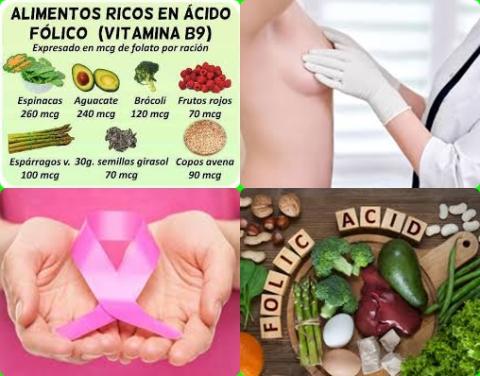
Objectives:
Epidemiological studies showing the correlation between folate (folic acid) and the breast cancer risk have revealed inconsistent results. Therefore, this review article (meta-analysis) has been conducted.
Do higher folate dietary intakes or plasma folate levels reduce risk of breast cancer?
Study design:
This review article included 39 studies on folate dietary intake (19 were prospective cohort studies, which included 37,917 cases (persons with breast cancer) and 20 were case-control studies, which included 13,074 cases and 17,497 controls (persons without breast cancer)) and 12 studies on plasma folate level (10 were case-control studies, consisting of 7,850 cases and 8,898 controls and 2 cohort studies, consisting of 815 incident cases).
Results and conclusions:
The investigators found when compared to the lowest folate dietary intake, the highest folate dietary intake significantly reduced risk of breast cancer with 15% [combined OR = 0.85, 95% CI = 0.79 to 0.92, I2 = 75.2%, p 0.001].
This reduced risk was not significant for cohort studies [OR = 0.97, 95% CI = 0.91 to 1.03, I2 = 53.3%, p = 0.316].
The investigators found for every 100-μg/day increase in folate dieatary intake, a significantly reduced risk of 2% for breast cancer [combined OR = 0.98, 95% CI = 0.97 to 0.99, I2 = 72.8%, p = 0.002].
This reduced risk was also significantly in cohort studies [summary OR = 0.99, 95% CI = 0.98 to 1.00].
Significant means that there is an association with a 95% confidence.
The investigators found stratification by menopausal status showed that a higher folate dietary intake significantly reduced risk of breast cancer in premenopausal women with 20% [OR = 0.80, 95% CI = 0.66 to 0.97, p = 0.022] but not in postmenopausal women [OR = 0.94, 95% CI = 0.83 to 1.06, p = 0.320].
Significant because OR of 1 was not found in the 95% CI of 0.66 to 0.97. OR of 1 means no risk.
The investigators found the highest versus lowest plasma folate levels had no correlation with the risk of breast cancer [combined OR = 0.98, 95% CI = 0.82 to 1.17, I2 = 63.0%, p = 0.822].
The investigators concluded there is a negative correlation between folate dieatary intake, at least 100-μg/day and the risk of breast cancer. However, plasma folate levels have no correlation with the risk of breast cancer. Therefore, whether folate dietary intake has practical clinical significance requires further study and the use of additional folate supplements should be carefully considered.
Original title:
Association of folate intake and plasma folate level with the risk of breast cancer: a dose-response meta-analysis of observational studies by Ren X, Xu P, [...], Dai Z.
Link:
https://www.ncbi.nlm.nih.gov/pmc/articles/PMC7695428/
Additional information of El Mondo:
Find more information/studies on significant/cohot studies, folate (folic acid) consumption and breast cancer right here.
The plasma folate level can be increased by taking folate-rich foods and/or folate supplements.